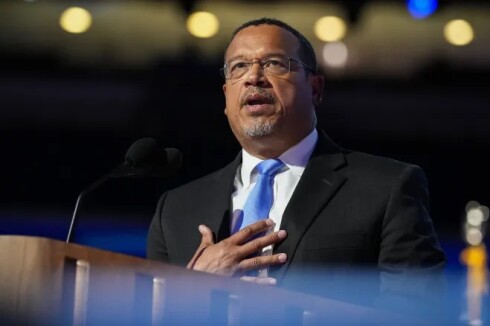DULUTH — Staying warm this winter is likely to be a more expensive proposition for most residents, with natural gas prices expected to run 28% higher than last year, according to an outlook report released by the U.S. Energy Information Administration last week.
Customers enrolled in Comfort Systems’ budget billing program are already feeling the pinch as the city responds to higher natural gas prices that may well continue to rise.
ADVERTISEMENT
Budget billing allows customers to even out their monthly utility bills, avoiding the seasonal peaks and valleys that go with living in the Northland. Comfort Systems uses past usage and predicted pricing to figure out a monthly average payment expected to cover the cost of water and gas for the year.
The program runs from September to August, and participants recently saw their monthly payments take a leap, to reflect the higher cost of natural gas. They also were hit with an August payment adjustment to compensate for higher-than-anticipated natural gas prices.
Carrie Lustig, who has been in her role as Comfort Systems’ gas operations supervisor for a decade, said the unexpected August balloon payments for budget plan customers were a first under her watch.
But customers who are not on Comfort Systems’ budget plan likely won’t truly feel the financial shock until their next utility bill arrives, as the mercury drops and households fire up their furnaces for the season.

Russia’s decision to invade Ukraine and the diplomatic conflicts that have arisen from the ongoing war, have disrupted global natural gas supplies.
As Western countries wean themselves off Russian fuel, the U.S. has emerged as the world’s top exporter of natural gas, impacting domestic supplies of the fuel, Lustig explained.
Meanwhile, the pace of fracking has slowed and pipeline projects have stalled.
ADVERTISEMENT
Most Duluth homes are hooked up to natural gas. Comfort Systems has about 28,400 water meters in the field and approximately 26,000 natural gas customers.
“We’re just sort of the bearers of bad news,” said Courtney Gallo, a paralegal for Comfort Systems.
But Gallo said she understands customers’ frustrations: “We don’t blame them. The cost of everything is rising.”
For people in need, low-income households may qualify for energy assistance through the Arrowhead Economic Opportunity Agency, the Salvation Army or the Minnesota Assistance Council for Veterans.

“We encourage people to sign up for assistance before the heating season starts to kind of get ahead of the game. So people don’t get into a hole during the winter. Then, spring comes around and it kind of feels insurmountable,” Gallo said.
George Flaim, a customer service coordinator, said Comfort Systems recommends that residents get their furnaces and water heaters tuned up now so they are operating at top efficiency as the heating season begins.
“If you put a high-efficiency unit in your house and don’t maintain it, it’s not going to stay at its rated-highest efficiency,” he said.
ADVERTISEMENT
Flaim suggested residents also look to foam seal around exterior vents and outlets to tighten up their homes and prevent heat loss.
Water heater blankets can also be helpful, particularly for those whose water heaters are located in cooler parts of their homes, such as an unfinished basement or garage.
Then, there’s also the obvious option to turn down your thermostat.
“If you turn it down 3 degrees every night or when you leave for work during the day, you can save between 5 and 10% per year on your bills,” Flaim said, suggesting residents also consider pulling on a sweater instead of turning up the heat when at home.
Gallo said Comfort Systems can connect customers with Ecolibrium3 and Northern Energetics, organizations that offer free energy audits that can identify ways to improve energy conservation.
Lustig said pre-existing long-term contracts and purchased gas already in storage will help cushion the blow for Comfort Systems customers. She acknowledged that entering into five-year contracts is sometimes a roll of the dice, given the volatility of fuel prices. Yet, she said: “We do a little hedging, and the risk we took with the contract has paid off. It’s a really low-price contract. At the end of this month, we’ll have all of our storage gas in the ground, too. And we’ll put that in the ground at a pretty good price.”
Still, Lustig said Comfort Systems isn’t completely shielded from the vagaries of the spot market.
ADVERTISEMENT
“That kind of holds our feet to the fire a little bit,” she said, noting that Duluth nevertheless is fortunate to have two competing suppliers: the Northern Natural Gas and Great Lakes pipelines. Comfort Systems also works with Tenaska, an energy asset management company.
“So, they can juggle our gas around, and we’ve gotten some real good savings off of that in the past,” Lustig said.
While fuel prices are clearly beyond the city’s control, Lustig said the current market does weigh on her.
“It’s emotionally challenging, because the reason why we do our jobs is to try to get the best-priced gas we can for our city’s customers,” she said. “It breaks my heart when I wake up and hear gas is $24 per MCF (1,000 cubic feet), where yesterday it was $8. And you know that has to be passed along to the customer.”
















